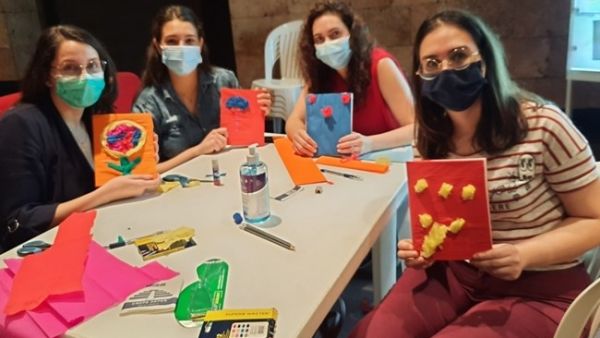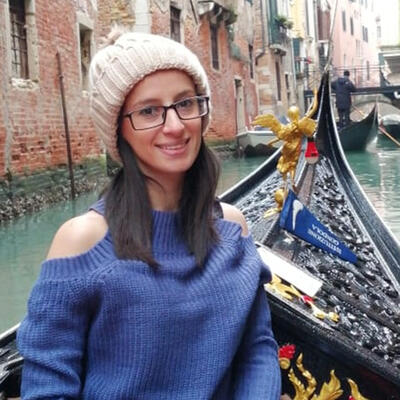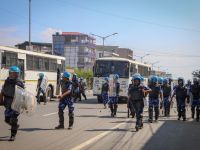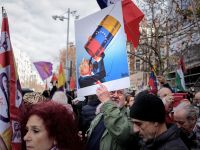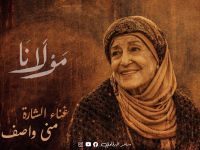It’s been a hard year for the city’s medical staff. With the pandemic, economic and financial crisis, colleagues’ emigrating, then the port explosion, nurses’ nerves are stretched thin.
The Meadows Art Therapy NGO has spent the last few months trying to treat the trauma nurses experienced when thousands of wounded flooded Beirut hospitals after the blast.
“On Aug. 4 we said we have to help and art therapy is the only way we directly knew how to help,” Meadows co-founded Lena Kelekian told The Daily Star. “The Saint George Hospital was destroyed and the nurses and doctors were in turmoil.
“They’re the heroes who take care of people who are sick or in need of therapy, so it was important for us to take care of them, to help them handle the situation they passed through,” she added. “Every week or other week we did a session, according to when the nurses were available. Then we started doing it with the Clemenceau Medical Center hospitals. The nurses started to relax, talked about things you couldn’t imagine.”
So far, Meadows has conducted art therapy sessions for 150 of their nurses and hope to help around 1000 in the coming year.
“I went home happy and relaxed and ready to go back the next day. All the art and breathing exercises were really good,” Saint George nurse Amale Maatalani Sabbagh told her therapy group. “I hope the next days for us and the country are good, because we’re always thinking about emigrating.
“It really teaches you how to relax and release all the stress from our daily lives. I personally benefited a great deal.”
Initiated by Femme Art Mediterranee in Greece and sponsored by America’s Art Reach foundation and Paint Pals, Meadows had its first training sessions in 2006 in Rhodes, seeking to offer art therapy sessions for those traumatized by the July 2006 war.
Further training was taken in 2007 at the Queen Rania Center for social services in Amman, Jordan, to aid children affected by the 2007 Nahr al-Bared conflict.
After the events of 2020, Meadows restarted larger-scale programs, taking groups of 20 nurses for 10 hours over two days, with workshops tailored to their needs.
“We never claim to be physiatrists, but we’re relieving the anxiety and stress from an already demanding job for nurses in normal circumstances, never mind with COVID and the explosion,” Meadows co-founded Hagop Sulahian said. “A common phrase we were hearing from them was ‘We are burned out.’
“We do everything in groups because we believe group therapy brings out the feelings from each other. We encourage people to go on stage and address their story to everyone,” Sulahian added. “To have an audience and to show courage in telling them about their fears, to have them interacting, is very effective.”
The sessions combine various types of art, from painting to creating performance pieces to share their feelings.
“One of our team members is Edgar Aoun, a world-renowned tenor, who teaches them operatic breath techniques, to allow them to calm themselves and get maximum oxygen into the body,” Kelekian said. “Then we do singing, theater and poetry sessions, with them creating their own. We let them express themselves on stage and teach them about stage presence to teach confidence.
“The nurses became friends with each other, whereas at work they never really talked, and now they share their trauma and heal together,” she added. “One of the nurses [whose] colleague passed away during the explosion, the first day he said nothing and refused to take part. The second day he was smiling and came on stage, saying his mother had noticed a change in him after the therapy session. He went on to do a beautiful theatrical piece.”
The Meadows team hopes to expand their program to cover more hospitals and, once the pandemic eases, to hold workshops for school children and teachers suffering the effects of the blast.
So far the workshops have been free of charge, and Meadows hopes to find some funding to continue to program on a long-term basis, and to pay their staff.
Their success with hospitals has encouraged them to make the art therapy sessions a permanent fixture for medical staff in high-stress jobs.
Sulahian believes that Lebanon’s recent crises have caused more emotional trauma than any of the previous conflicts they’ve addressed. Acknowledging trauma can be difficult for some, who believe therapy is only for people who have mental conditions.
“It’s not just the nurses. Everyone is this country has become traumatized. Even people who were not in the explosion, who just saw it on TV, have been affected,” Sulahian said. “During our storytelling sessions, the majority say they want to go to a place and sit alone, detach themselves from the bitter reality we find ourselves in now. It’s worse than the wars.
“True, there was shelling, but there was no financial crisis or pandemic. Businesses were booming, people had money. In the war there would be shelling. Then, for the three-hour ceasefire, pubs would be full with people having fun and chatting,” he added. “There would be a funeral in the morning and a wedding in the evening because life had to go on. People were not desperate for their livelihood.
“Now it’s all piled up and it’s pushed people past what they can handle, which is why the level of trauma is so high, and so complicated.”
This article has been adapted from its original source.



